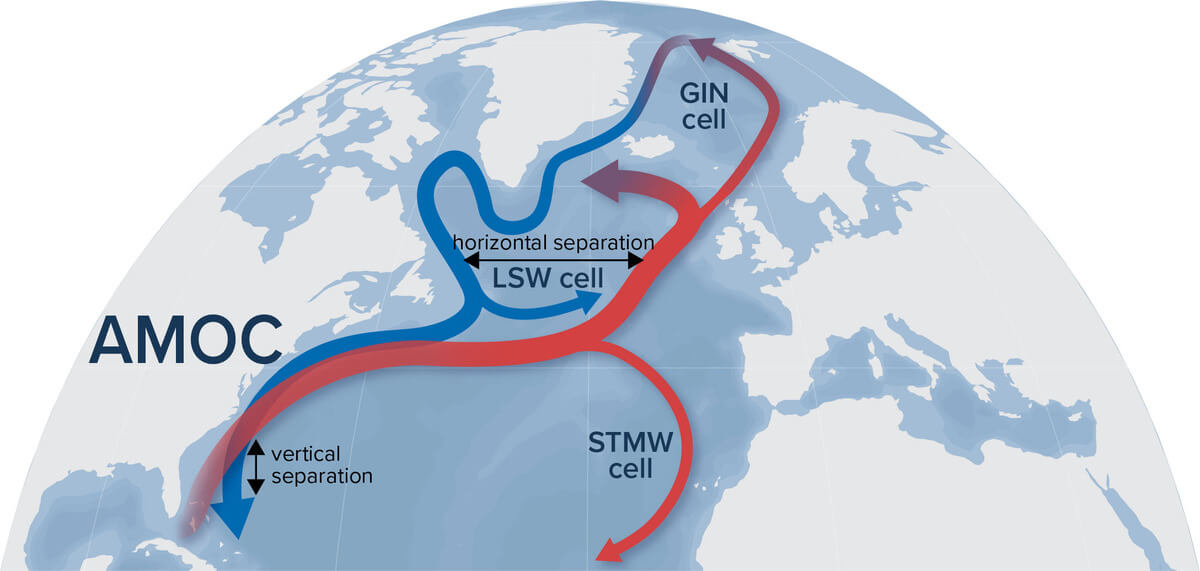A groundbreaking study led by Dr. René van Westen from Utrecht University, published in June 2025, warns of dire climatic consequences stemming from the potential collapse of the Atlantic Meridional Overturning Circulation (AMOC). The findings highlight how climate change, particularly due to ice melt, could bring brutal winters to northern Europe.
Atlantic Meridional Overturning Circulation (AMOC)
The Atlantic Meridional Overturning Circulation is a crucial component of the global climate system. It acts like a conveyor belt—moving warm water from the tropics northward and sending cold water back south. This exchange helps balance global temperatures and weather systems.
Freshwater: A Disruptive Force
As global temperatures rise, melting ice from Greenland is pouring vast amounts of freshwater into the North Atlantic. This fresh influx dilutes the salty seawater, making it less dense and disrupting the deep-water sinking process that drives the AMOC. Without this critical mechanism, the entire system risks grinding to a halt.
The Model Behind the Warning
To assess the risk, researchers used the Community Earth System Model (CESM). They introduced a strong freshwater surge in simulations to mimic accelerated ice melt. This helped overcome model biases that previously suggested the AMOC was more stable than reality indicates.
What Happens If AMOC Collapses?
The results are startling. With just 2°C of global warming:
- London could see average winter temperatures drop to 1.9°C, with lows plunging to -19.3°C.
- Edinburgh might experience deep freezes down to -29.7°C.
- Oslo could face bitter winters averaging -16.5°C, with extreme lows nearing -48°C.
A Climate of Extremes
While winters would become drastically colder, summers might remain warmer than historical norms—leading to an unsettling climate paradox: freezing winters paired with sweltering summers. Such seasonal whiplash could lead to unprecedented stress on ecosystems and public health.
Global Ripples
The impact wouldn’t stop in Europe. A shutdown of the AMOC would likely shift the Intertropical Convergence Zone southward, weakening vital monsoon systems across:
- India
- West Africa
- The Amazon
This would disrupt rainfall patterns and water supplies for millions.
Europe’s Preparedness at Risk
Europe’s infrastructure is not built for such extreme cold. The combination of inadequate insulation, energy systems, and preparedness could strain societies, leading to massive adaptation challenges in the face of increasingly erratic climate behavior.



